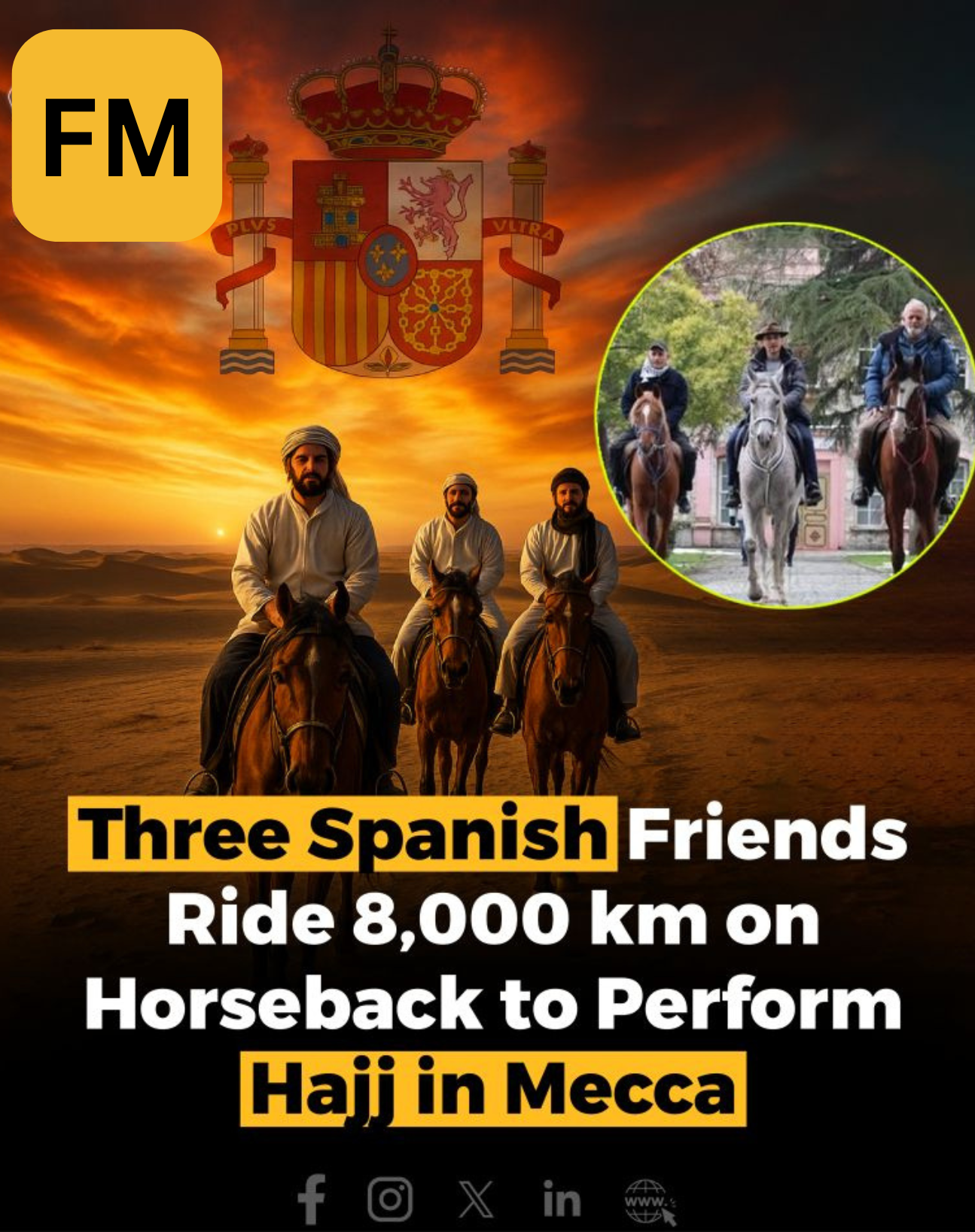In an extraordinary display of faith and perseverance, three Spanish Muslims—Abdullah Hernández, Abdul Qadir Harkasi, and Tariq Rodriguez—completed an arduous 8,000-kilometer journey on horseback to perform Hajj in Mecca. Their three-month expedition, which spanned 10 countries, not only fulfilled a personal spiritual vow but also revived a centuries-old tradition of Andalusian Muslims traveling to the holy cities on horseback.
A Journey Inspired by Faith
The idea for this remarkable pilgrimage came from Abdullah Hernández, who made a vow to undertake the journey after embracing Islam. Inspired by the historical travels of Muslim scholars and traders from Al-Andalus (Islamic Spain) who once traversed vast distances to reach Mecca, Hernández decided to follow in their footsteps. He was joined by his two close friends, Abdul Qadir Harkasi and Tariq Rodriguez, who shared his passion for adventure and spiritual fulfillment.
To ensure their safety and logistical support, the trio was accompanied by Boucheb Jadil, who followed them in a support vehicle carrying supplies, feed for the horses, and necessary equipment.
Crossing Continents: A Test of Endurance
The journey began in Spain, from where the riders traveled through France, Italy, Slovenia, Croatia, Serbia, Bulgaria, Turkey, Syria, and Jordan, before finally entering Saudi Arabia. The route was carefully planned to avoid conflict zones while allowing them to experience the rich Islamic heritage along the way.
One of the most spiritually significant parts of their trip was spending the holy month of Ramadan in Istanbul, Turkey. There, they visited historic mosques, including the Hagia Sophia and the Blue Mosque, deepening their connection to Islamic history before continuing their trek toward Saudi Arabia.
Challenges and Triumphs
Traveling on horseback for such a long distance presented numerous challenges. The riders had to endure extreme weather conditions, rugged terrains, and the physical toll of daily riding. Their horses, which were specially trained for long-distance travel, required constant care to maintain their health and stamina.
Despite these hardships, the journey was filled with moments of profound spiritual reflection and human connection. Along the way, they met local communities who offered them hospitality, reinforcing the Islamic tradition of generosity and brotherhood.
Reviving a Forgotten Tradition
Historically, Muslim pilgrims from Al-Andalus would undertake months-long journeys to perform Hajj, often on horseback or by caravan. With modern transportation making the pilgrimage more accessible, such traditional methods had faded into history. However, Hernández and his friends sought to revive this legacy, demonstrating that the essence of Hajj lies not just in the destination but in the devotion and effort of the journey itself.
A Message of Perseverance and Unity
Their incredible feat has captured the attention of Muslims and non-Muslims alike, serving as a powerful reminder of faith, determination, and cultural heritage. By choosing the harder path, they embodied the true spirit of Hajj—sacrifice, patience, and unwavering trust in God.
As they finally arrived in Mecca, their hearts filled with gratitude, their story became an inspiration for future generations. Their journey proves that even in the modern age, the ancient traditions of pilgrimage can still be honored, and the bonds of faith can overcome any distance.
Conclusion
The horseback Hajj journey of these three Spanish Muslims is more than just an adventure—it is a testament to the enduring power of faith and the timeless connection between believers and their spiritual roots. In an era of fast travel, their choice to slow down and embrace the struggle of the road serves as a profound lesson in devotion, resilience, and the beauty of keeping tradition alive.

